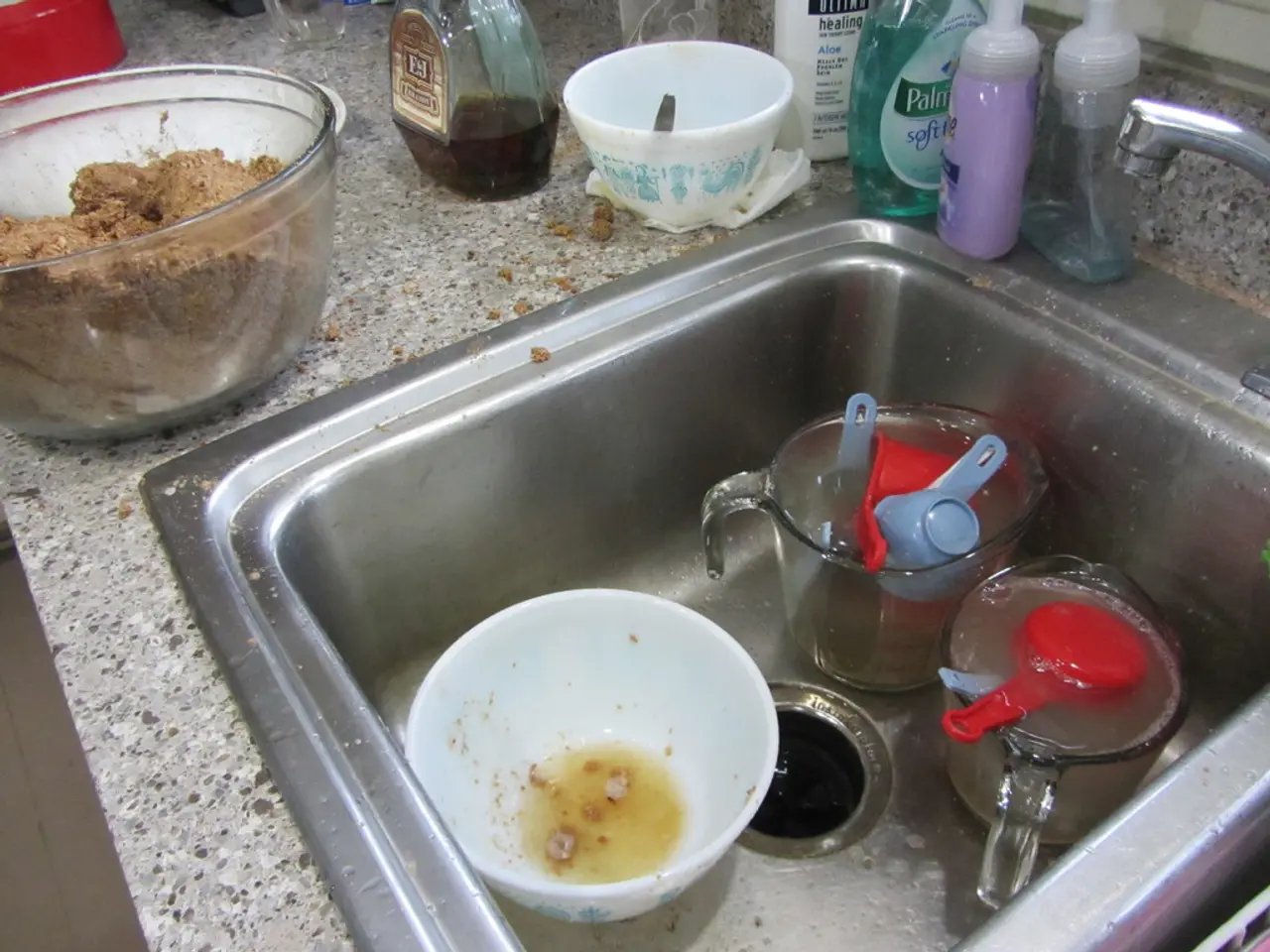Southern vacation spots face a potential health risk from rotaviruses, a common cause of diarrheal diseases in children and adults alike. Debunking common misconceptions and understanding the reality of this virus is crucial.
In the realm of health and wellness, it's essential to separate fact from fiction. Two popular beliefs that have been circulating for some time are the use of activated charcoal and cola as remedies for rotavirus infections. However, recent research shows that these substances are not effective in preventing or treating rotavirus.
In the past, the idea that sugar and phosphoric acid in cola could help alleviate the symptoms of intoxication was popular in the United States during the 60-80s. While this notion, often referred to as the "cola story," may have held some appeal, modern medicine strongly advises against consuming soda during gastrointestinal infections.
Similarly, the belief that a shot of cognac can "disinfect" the stomach is a dangerous misconception. In reality, such a practice could potentially worsen the situation.
Activated charcoal, known for its toxin-adsorbing properties, is often used to treat poisonings. However, when it comes to viral gastroenteritis like rotavirus, there is limited or no strong evidence supporting its benefit. In fact, its use without medical supervision can lead to side effects such as dark stools, constipation, and intestinal blockage.
Rotavirus, a common culprit for diarrhea and dehydration in infants and young children, requires a different approach. Treatment typically focuses on rehydration and supportive care rather than adsorptive or beverage treatments.
On the Black Sea coast, rotavirus infections are a common problem for vacationers, causing high fever and diarrhea. However, neither activated charcoal nor cola have been proven to offer any benefit in preventing or treating rotavirus infections.
Vaccination for infants is a more effective method of protection against rotavirus. Specialized rehydration solutions like Oral Rehydration Salts (ORS) are also much more effective during gastrointestinal infections.
It's worth noting that a person can still be contagious for several days after symptoms disappear. It's officially safe to consider someone recovered if they have no symptoms for more than 48 hours at home.
In Abkhazia's sanatoriums, special diets and medical care programs are often developed for those affected by rotavirus. These programs emphasize the importance of rehydration and supportive care over unproven remedies like activated charcoal and cola.
In conclusion, while activated charcoal and cola may have their uses in certain contexts, they are not effective or recommended treatments for rotavirus infection or stomach viruses in general. The best management for rotavirus remains hydration and medical supervision.
- In the realm of health and wellness, it's crucial to distinguish fact from fiction, especially regarding the use of activated charcoal and cola for rotavirus infections.
- During the 60-80s in the United States, a popular belief was that sugar and phosphoric acid in cola could alleviate the symptoms of intoxication, but modern medicine discourages consuming soda during gastrointestinal infections.
- The notion that a shot of cognac can "disinfect" the stomach is a harmful misconception that could potentially worsen the situation.
- Activated charcoal, which is known for adsorbing toxins, may be used to treat poisonings, but there is limited evidence to support its benefit in treating viral gastroenteritis like rotavirus.
- The dangerous side effects of using activated charcoal without medical supervision include dark stools, constipation, and intestinal blockage.
- Treatment for rotavirus, a common cause of diarrhea and dehydration in infants and children, should focus on rehydration and supportive care rather than adsorptive or beverage treatments like activated charcoal and cola.
- Consumers on the Black Sea coast who are affected by rotavirus infections may think that activated charcoal or cola could offer benefits, but these substances have not been proven effective.
- Vaccination for infants is a more reliable method of protection against rotavirus infections.
- Specialized rehydration solutions such as Oral Rehydration Salts (ORS) are much more effective in managing gastrointestinal infections.
- It's essential to remember that a person can be contagious for several days after symptoms disappear, and they are officially considered recovered when they have no symptoms for more than 48 hours at home.
- In Abkhazia's sanatoriums, special diets and medical care programs focus on rehydration and supportive care for individuals affected by rotavirus, rather than relying on unproven remedies.
- The widespread use of activated charcoal and cola for rotavirus infections may not be effective or recommended treatments, and the best management strategy remains hydration and medical supervision.
- Other health concerns in the areas of health and wellness, fitness and exercise, mental and neurological health, sexual health, skin care, cardiovascular health, cancer, chronic diseases, and autoimmune disorders, require a more targeted approach with the help of specialized therapies, treatments, and nutritional plans.
- With aging, the focus on health and wellness becomes even more critical, as it encompasses new aspects like mens health, womens health, parenting, weight management, cbd, and its potential effects on neurological disorders and skin conditions.




